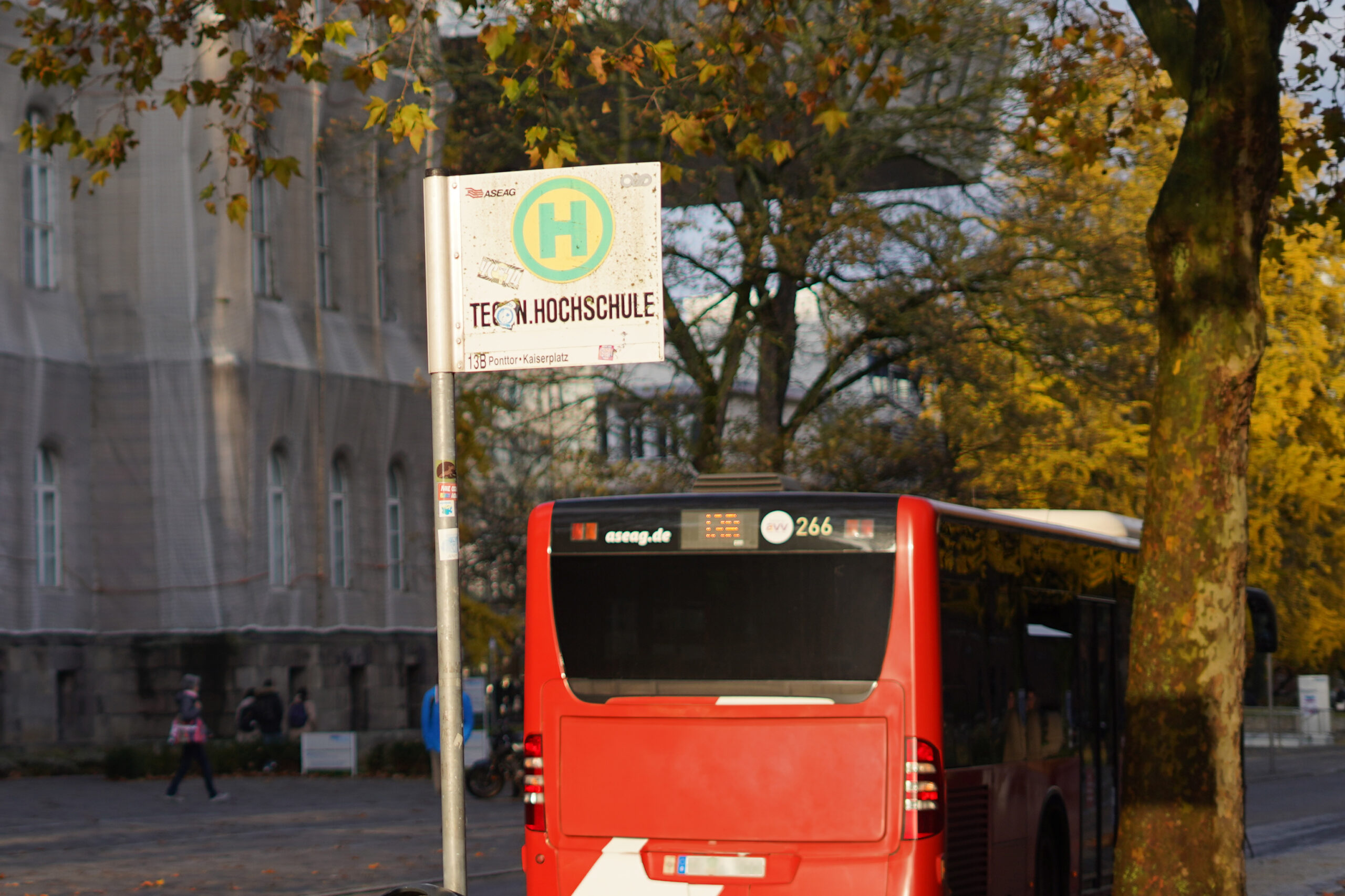On Wednesday, the student parliament of RWTH Aachen University decided to terminate the SemesterTicket NRW for the summer semester 2024. The paradox: the student body is not cancelling the semester ticket because it wants to abolish it, but because the Deutschlandticket and the lack of a solution leave no other choice.

© 2023 AStA der RWTH Aachen
The background
The Deutschlandticket was announced in October 2022. Since then, the AStA has been campaigning for a solution in the context of the Deutschlandticket and thus for the preservation of affordable and sustainable mobility.
The semester ticket is offered as a solidarity model, i.e. all students pay the same contribution – regardless of how much they use it. Following complaints, the Federal Administrative Court ruled that the advantage for the entire student body must be greater than the disadvantage for individual students who do not use the ticket or only use it a little. Previously, the solidarity model allowed a price advantage of almost 90%, while comparable tickets were 10 times more expensive.
The transport ministers of the federal states have also recognised the problem and therefore decided at their conference in Aachen at the end of March 2023
“[T]he development of a nationwide solidarity model for students based on the Deutschlandticket [is] […] still the goal. It is to be introduced as soon as possible. In order to maintain the existing solidarity models for semester tickets for all students in a legally secure manner in the long term, the federal and state governments will develop a proposal for the integration of this ticket into the Deutschlandticket system in the short term.”
At federal and state level, the Coordination Council for the Deutschlandticket has had an elaborated model since mid-June. However, the decision on this has been postponed again and again – in particular due to the blockade of the federal government. For this reason, Aachen City Council passed a resolution [1] in September in favour of maintaining the solidarity model. However, no agreement was reached between the federal and state governments at the transport ministers’ conferences at the end of September and beginning of October or at the conference of state premiers last week.
On the effects
In Aachen, the contract for the AVV semester ticket expires at the end of the winter semester. As a result, the student parliament has decided to terminate the SemesterTicket NRW – the extension of the AVV semester ticket to the whole of North Rhine-Westphalia – for the 2024 summer semester. The long-awaited solution from the federal and state governments is overdue, the semester ticket is facing its end. The time in which it would have been possible to adopt a follow-up solution for the summer semester expires in December.
“We are frustrated and disappointed. We have been fighting for a solution for a year, have repeatedly warned of the cancellation of the ticket and the consequences and have clearly communicated our deadlines. But a viable solution has still not been found,”
commented Simon Roß, Chairman of the AStA at RWTH Aachen University. The paradox is that the cancellation of the semester ticket is a loss for everyone – for the students, for the transport companies, for the public budget and for society.
This exacerbates the precarious financial situation of students who are dependent on affordable mobility. With the cancellation, only the Deutschlandticket remains, which (at the current price) would mean additional costs of almost 200 euros per year for students who rely on public transport.
Marco Leonhardt, Finance Officer at the AStA of RWTH Aachen University, adds:
“The price of the ticket must fall in order for us to be able to continue offering it to students. And this is also possible because the abolition of the semester ticket would ultimately cost transport companies and public budgets more money. Students cannot plug the holes in public transport funding that have been created by the 49-euro ticket.”
ASEAG alone would lose annual, predictable revenue totalling almost 13 million euros.
The end of the ticket is also dramatic for the sustainability goals: students have been living the mobility turnaround for over 20 years. In addition to the social aspects, ecological aspects such as land consumption and CO2 pollution also played a role in the introduction of the ticket. The discontinuation of the semester ticket would therefore also be a disaster from a mobility and climate policy perspective.
The ball is now in the politicians’ and transport companies’ court to propose a solution by December.
Detailed answers to questions on this topic: Deutschlandticket-Semesterticket FAQ
Images
Images can be found under the following link:
https://rwth-aachen.sciebo.de/s/zvODOP9dI7mcMO0
© 2023 AStA of the RWTH Aachen. The images may be used in relation to the above press release. Please contact us in advance (see first page of this press release for contact details). Reproduction is free of charge for press purposes. The source must be quoted.
Press contact
The chairperson of the AStA of RWTH Aachen University is available as a contact person for the press (vorsitz@asta.rwth-aachen.de).